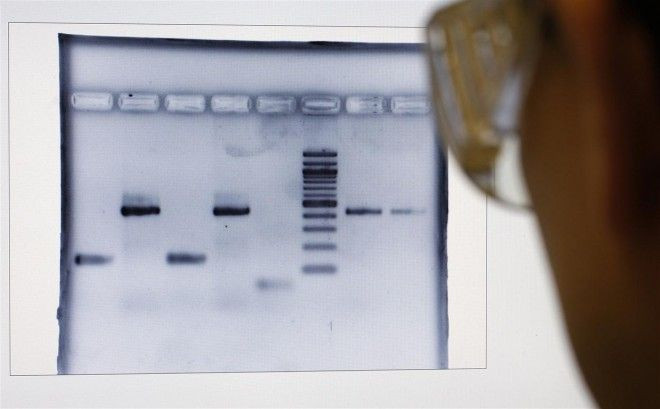Ultrafast Gene Sequencing On Anvil

Scientists in the UK are developing technology using nanopores that could ultimately sequence a person’s genome in mere minutes, unlike available commercial methods, which require complex process.
The researchers have patented an early prototype technology - sequencing using nanopores - that they believe could lead to an ultrafast commercial DNA sequencing tool within ten years. Nanopore sequencing has long been considered the next big development for DNA technology because of its potential for high speed and high-capacity sequencing.
The new technology would be a fast, simple procedure, whereas current techniques involve time-consuming and destructive chemical processes to break down and replicate small sections of the DNA molecules to determine their sequence, the researchers said.
Our initial experiments suggest that you could theoretically do a complete scan of the 3,165 million bases in the human genome within minutes, providing huge benefits for medical tests, or DNA profiles for police and security work, said Joshua Edel, one of the authors on the study from the Department of Chemistry at Imperial College London.
In the new study, the researchers showed that it is possible to propel a DNA strand at high speed through a tiny 50 nanometre hole - or nanopore - cut in a silicon chip, using an electrical charge. They were able to make two tiny platinum wires into an electrode junction with a gap sufficiently small to allow the electron current to flow between them.
The 'tunnelling electrode junction' reads the coding sequence as the strand emerges from the back of the chip. A powerful computer can then interpret the base code’s signal to construct the genome sequence, they said.
The next step will be to differentiate between different DNA samples and, ultimately, between individual bases within the DNA strand (ie true sequencing), said Tim Albrecht, another author on the study.
Earlier this month, US-based DNA sequencing equipment maker Life Technologies Corp. announced the launch of its Ion Personal Gene Machine (PGM) sequencer that gives results in two hours, potentially enabling important applications, including infectious disease monitoring and molecular pathology.
© Copyright IBTimes 2025. All rights reserved.





















